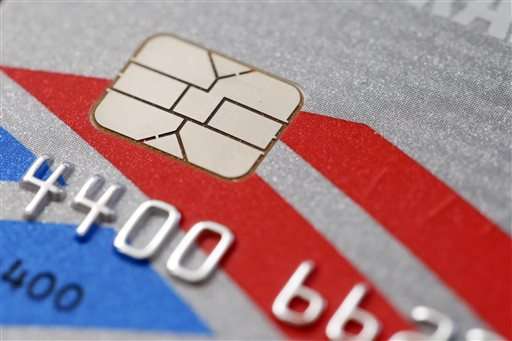New technology in credit cards leads to headaches for some

Millions of Americans are getting new credit and debit cards with more secure chip technology, and that's already leading to headaches for companies that rely on working cards to charge their customers every month.
Video and music streaming companies, dating websites, gyms and other subscription-based companies can take a hit when customers don't update their accounts after receiving a new card. It's always been a hassle, but with millions of cards carrying the new chip technology being mailed out all at once it's creating bigger problems.
Netflix this week said large numbers of cards that weren't updated were partly to blame for slower subscriber growth in their most recent quarter.
The video steaming site said Wednesday that an unusual number of accounts were cancelled during the three months that ended in September. Netflix Inc., which has 69 million members around the world, expects the issue to continue into the next quarter as more new chip cards roll out.
With subscription services gaining in popularity, where customers have funds automatically withdrawn from checking accounts every month for a service, it has become increasingly noticeable when people don't update the cards that they use for those services, or are unaware that they need to.
Often, the number on the card is still the same, but the expiration date has changed, said Matt Schulz, a senior analyst at credit card comparison site CreditCards.com. Typically, payments won't go through if the expiration date is different.
Recurly, a San Francisco company that manages bill payments for more than 1,900 subscription businesses, said it has seen a slight increase in card declines. Recurly uses a service for its clients that automatically updates when new card numbers are issued, so the customer doesn't have to do it themselves, said CEO Dan Burkhart, though not every bank participates in the service. Burkhart said subscription companies will face some "turbulence" as customers get new cards, but those issues typically resolve within a few months.
The problem has hurt Netflix before.
A year ago, the Los Gatos, California, company said a number of customer's accounts were put on hold due to The Home Depot data breach, which forced many customers who shopped at the home improvements store to get new credit cards.
Similarly, IAC/InterActiveCorp, a New York company which owns dating websites such as Match.com and OkCupid, said last year that credit cards that were not updated after major security breaches at Target and Home Depot cost it about $5 million in earnings for the year before interest, taxes, depreciation and amortization.
New cards may continue to haunt subscription businesses in the coming months. Most cards in the U.S. haven't been switched to chip cards yet.
"This issue isn't going away anytime soon," said Schulz.
© 2015 The Associated Press. All rights reserved.

















